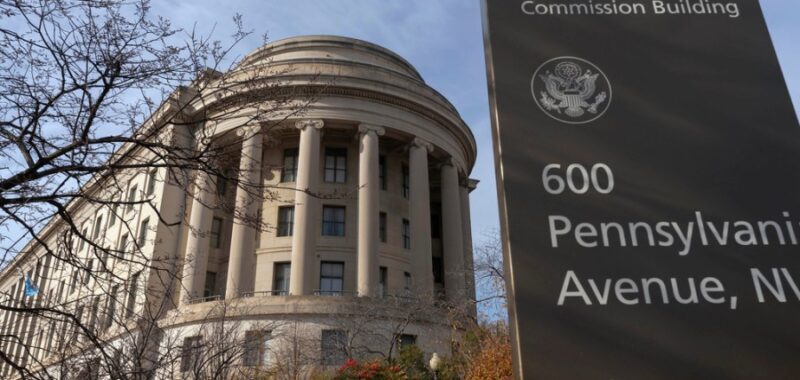
The Federal Trade Commission, like many independent agencies, is run by a bipartisan commission comprising three members of the party that controls the White House and two members of the minority party. That is, it was until last week, when President Trump broke with tradition, history, practice and precedent, firing without cause the two Democratic commissioners. The move also flies directly in the face of a longstanding Supreme Court decision.
These firings leave the FTC under the control of only Republican appointees and are part of Trump’s plan to bring independent agencies under the political control of the White House. As bad as these firings and this plan are from a legal standpoint, they are even worse from a public policy perspective.
The independent agency model with bipartisan commissions has served the FTC and similar agencies, our financial system, the economy, and our country well for decades, including during the eight years of the Obama administration and the four years of the Biden administration, when Republican members of those agencies fulfilled their roles as minority commissioners.
While minority commissioners might vote against the majority’s actions, prior to the vote they typically try to change the majority’s mind and influence their actions, even if they ultimately vote against them. Minority commissioners also often engage a broader range of stakeholders and inject them into the process, highlighting concerns and issues that might otherwise be overlooked.
These actions make deliberation and decision-making more informed. They also empower the minority commissioners in negotiation with the majority, which often leads to important compromises.
As with all minority commissioners, whether Republican or Democrat, these actions force the majority to consider and address the full range of views, even if they weren’t adopted or didn’t materially change the outcome, although that also happens.
Tellingly, the chairs at independent agencies of both parties over the decades have striven (admittedly to varying degrees) to achieve bipartisan decisions. That’s because they know that bipartisan decisions are most likely to be accepted by the public and their political representatives, complied with by the regulated industry, upheld if there’s judicial review and, as a result, most durable over time.
The last point may be the most important. Minority party representation and input into decision-making reduces the width of the swings of the policy pendulum when administrations change. That contributes to policy predictability that is so essential to the private sector when allocating resources and planning.
The winner-take-all view of elections and government animating the FTC firings will not serve the country well. Like it or not, America is diverse politically, culturally, socially, ethnically and otherwise. Politically, some people vote for Democrats, some vote for Republicans, some don’t vote at all, but all are Americans who deserve to have a voice in their government regardless of which party may have won the most recent election. This is especially true given that many Americans who vote Democratic one election vote Republican the next and vice versa.
As important, in many critical areas, independent agencies have highly specialized expertise that is essential in effective rulemaking and law enforcement, areas that require a degree of insulation from political influence. However, it’s important to remember that these agencies are not free from political influence and accountability.
The president nominates the commissioners and picks the chair. The Senate considers the nominations and votes whether to confirm the nominees. Thereafter, the chair and commissioners can be and are called to testify before Congress and have other public-facing duties that provide for transparency, oversight and accountability, including in the regulatory process governed by the Administrative Procedures Act and judicial review by the courts.
These quasi-independent agencies — including the SEC, the Commodity Futures Trading Commission, the FDIC and the Federal Reserve — serve very important roles. For example, the independent agencies in the financial arena have crucial roles in ensuring fair and transparent markets, protecting consumers, promoting capital formation and supporting economic growth. The effectiveness of those agencies would be greatly diminished if decision-making was decided by or directly influenced by the whims of whoever happened to be in the White House for a couple of years.
The U.S. has the broadest, deepest and most liquid financial markets in the world, driving business creation, job growth, economic growth and rising living standards. However, the preeminence of these markets is not guaranteed. Their global standing hinges on the trust and confidence of investors and customers, who believe those markets are well-regulated and well-policed.
If investors believe that regulation and policing of our markets are based on the outcomes of the most recent election or worse, swing wildly from election-to-election, then the basis for their decisions to invest in America will be eroded and undermined. That will have devastating consequences for our economy and the lives and livelihoods of all Americans.
That’s why breaking with past practice and transforming independent financial regulatory agencies from bipartisan commissions into a one-party echo chamber is such a bad idea.
Everyone who cares about predictable, informed, and data-driven policies and a robust decision-making process that has credibility and is most likely to produce the best outcomes for all Americans needs to support bipartisan commissions and independent agencies. They have served the American people well for many decades and breaking with this tradition, history, practice and precedent would be unwise and dangerous.
Dennis Kelleher is president, CEO and co-founder of Better Markets.

